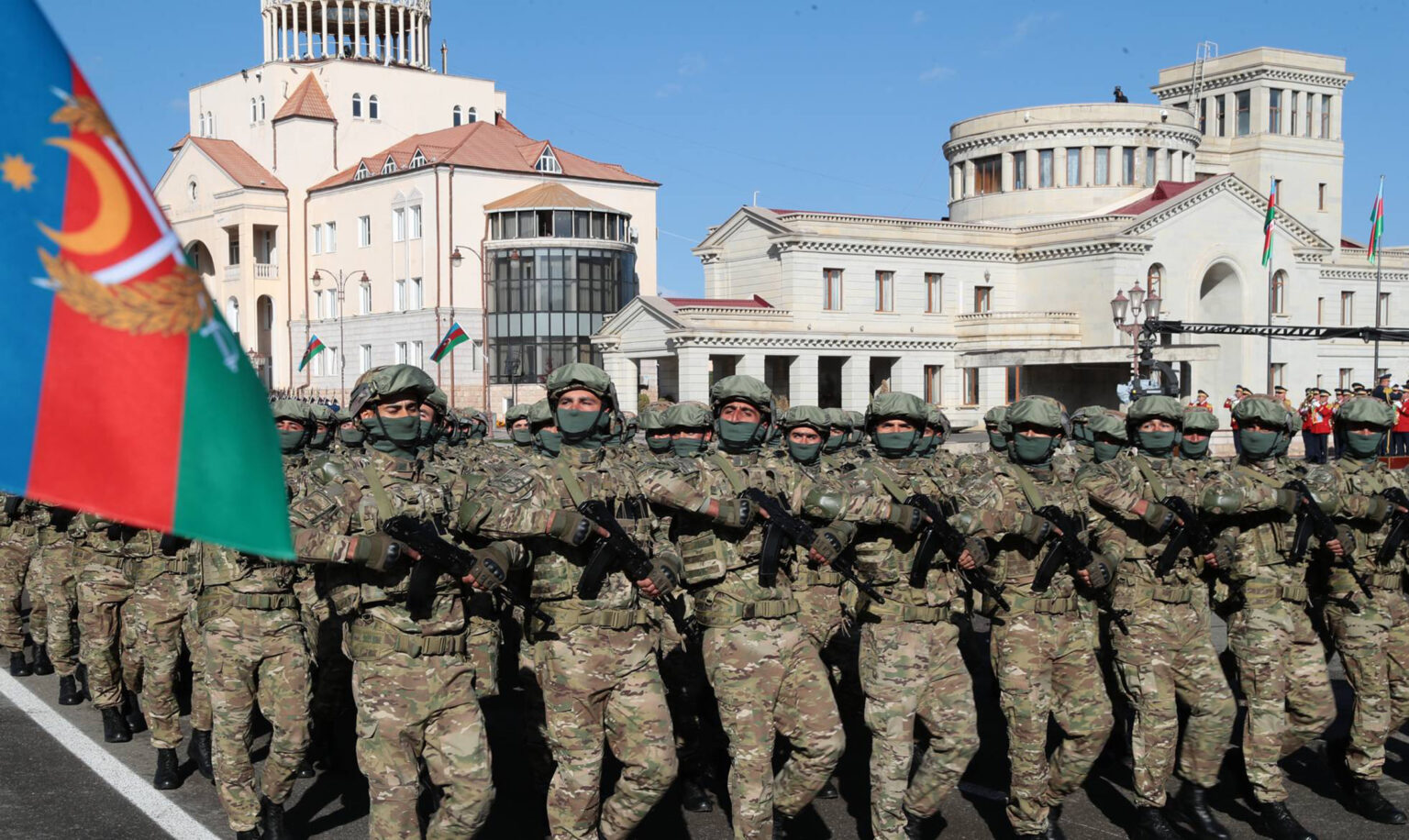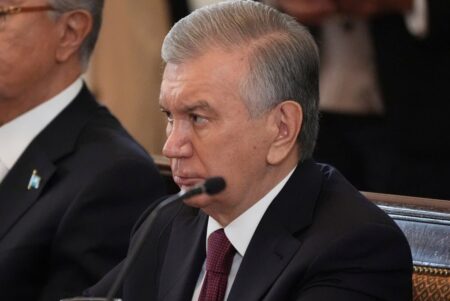Azerbaijan and Armenia are again engaged in a diplomatic blame game after a planned peace meeting in the United Kingdom failed. The two sides are seeking a peaceful settlement to more than 35 years of conflict in the South Caucasus.
Both Baku and Yerevan have blamed each other for the failure of a proposed meeting between Azerbaijani President Ilham Aliyev and Armenian Prime Minister Nikol Pashinyan during last week’s European Political Community summit at Blenheim Palace in the U.K.
“Prime Minister Pashinyan refused to meet with me,” Aliyev said this weekend.
Asked to comment, the Armenian embassy to the U.K. directed Newsweek to a statement by Foreign Ministry spokesperson Ani Badalyan, who said that Yerevan proposed the bilateral meeting “but that the Azerbaijani side rejected this proposal.”
She added: “The offer of the Armenian side still stands.”
Speaking with Newsweek just after the summit, Hikmet Hajiev—Aliyev’s top foreign affairs adviser—said Baku regretted the failure.
“Unfortunately, the Armenian side declined the offer,” Hajiyev said of the suggested meeting, adding that the Azerbaijani side was “surprised and also disappointed” at the outcome. “Every single opportunity is important to move our peace agenda forward,” he said.
“It doesn’t mean that bilateral engagement between Armenia and Azerbaijan for the peace agenda should stop, and we will continue to do that. But once again, there is a serious question about the seriousness of Armenia on the peace agenda.”
The two sides have been pushing for a peace agreement since a lightning Azerbaijani offensive in September 2023 effectively settled the decadeslong dispute over the mountainous region of Nagorno-Karabakh. The territory is internationally recognized as Azerbaijani, but the ethnic Armenian majority population there had enjoyed de facto independence with support from Yerevan.
Some 100,000 Armenians fled the territory in the face of the Azerbaijani offensive last fall. Baku has since been accused of ejecting populations and razing churches and homes in what Armenian critics say amounts to ethnic cleansing.
Azerbaijan has rejected the accusations and said it supports full integration of all communities remaining in the area following the completion of its “anti-terrorist” campaign.
Last week’s failed meeting, Hajiyev added, should not prove a “serious impediment” to further talks.
“Our peace treaty has almost been agreed between Armenia and Azerbaijan, and almost 90 percent of our text of our peace agreement has been cleared,” Hajiyev said.
Hajiyev said a key sticking point remains the Armenian constitution’s indirect commitment to incorporating Nagorno-Karabakh. The 1990 document notes the intention of the Armenian Soviet Socialist Republic and the Karabakh Council to “reunify the Armenian SSR and the Mountainous Region of Karabakh.”
Aliyev has said peace is “impossible” while the constitution remains unchanged.
Yerevan has said that it has no territorial ambitions toward Azerbaijani-controlled territory, suggesting its constitution is a domestic matter and not of Baku’s concern. In recent months, Armenia has handed over four contested villages to Azerbaijani control as part of the joint effort to demarcate and recognize each other’s borders.
Pashinyan said in June that while a peace deal was close, Baku’s continued insistence that Armenia change its constitution was a bid by Aliyev to ” torpedo” negotiations.
Nonetheless, both Baku and Yerevan remain publicly positive about the peace talks.
“Armenia and Azerbaijan, historically, are much closer to peace than it has been ever before,” Hajiyev said. “Now there is a de facto peace, and we don’t see any reason for any potential escalation. That’s good news for our region.”
Read the full article here














